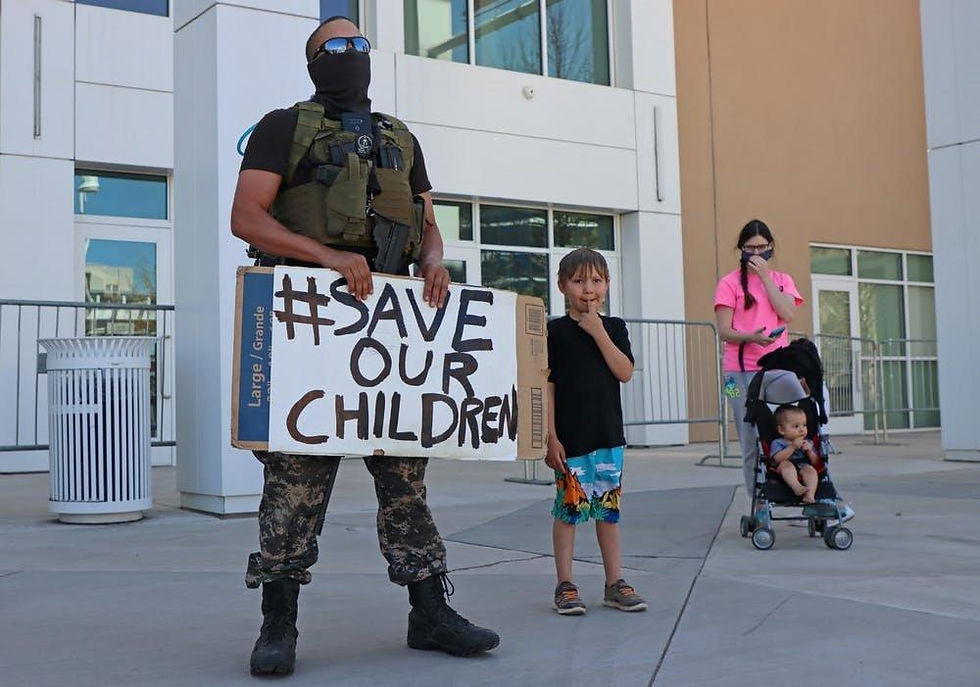The great Hispanic, Latino, Chicano struggle
- Stephan Helgesen
- Feb 6, 2018
- 3 min read
While listening to a radio program on KUNM the other day, I heard a conversation between Prof. Laura Gomez of UCLA and Prof. Gabriel Sanchez of UNM, both experts in Hispanic Studies. The program centered on the identity uncertainty that exists among the Hispanic, Latino and Chicano (HLC) peoples of the USA. Things were proceeding along nicely with some good points made by both professors until the head of the New Mexico 'Dream Team' showed up and intimated that the current Administration were racists because they disagreed with the DACAns' demands for immediate citizenship. She did us a big favor. She showed us the problem that exists in the immigration debate: serious discussions can never be held when one party resorts to false accusations, ad hominem attacks or is unable to discuss the issue, dispassionately.

No other single demographic group in our country is so vocal about their ancestry or ethnicity than the HLC which includes 23 countries...not the Asian community, the East European community, the Indian community, the African community, no one. Having said that, the HLC is to be congratulated for consistently grabbing headlines and commanding the attention of the American public as often as they do, especially when it comes to the DACA question. However, in these times of ultra partisanship, when we are desperately trying to come together as a nation of one people out of many, it seems totally counterproductive to focus on our differences rather than embrace our similarities.
It also seems more than a bit destructive. By that I mean that one or both political parties are already playing the identity politics game. To give them additional help in defining to the nth degree voter demographic groups to pander to is flat out wrong, just as it is wrong to ignore searching for the common ground that will enable us to solve our most pressing national issues.
Personally, I have no problem with anyone who wishes to find their roots and to choose an appropriate name to call themselves. Fine. After they've done that and they have adopted an identifier that suits them they can use it to place themselves in an ethnic 'box' and look at the rest of society from that vantage point. They can join others like themselves who wish to celebrate their history and ethnicity. They can wear that 'badge' with their friends and family; they can use it when lobbying their elected officials. They can check the appropriate box when it comes time to conduct the census and they can use their influence to get special ethnic study programs in high schools and colleges. Not a problem as long as they remember that they are first and foremost, AMERICANS and are part of a much larger social fabric with distinct obligations and allegiances.
Most non-HLC Americans have absolutely nothing against the HLC population, but many do find their slavish devotion to maintaining a 'hyphenated status' objectionable. Non-HLC citizens do not fear their growth as an ethnic community nor their growing power as voters. What they do fear is an HLC makeover of the USA into 'The Hyphenated States of America' with their ethnic group in control of the minority pyramid to the detriment of all the others.
I think that most fair-minded people of any political stripe, race or creed understand the importance of ethnic pride as being an integral part of the assimilation process, but there is a downside to it as well. It is when one minority group's voices drown out those of the other's. This must be especially galling for ethnic groups that have put their shoulders to the assimilation wheel and checked their hyphen at the door. Surely, they cannot be happy when any group attempts to elbow them out of the sphere of influence simply because they are better organized or speak with raised voices. It is my belief that our country is always best served when we minimize the differences between ourselves rather than exaggerate them for political purposes.
Stephan Helgesen is a retired U.S. diplomat and now political analyst and author. He has written eight books and over 800 articles on politics, economics and social trends. He can be reached at: stephan@stephanhelgesen.com







Comments